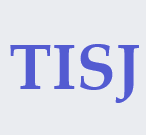Publication Ethics and Publication Misconduct Statement
From Top Italian Scientists Journal
At TISJ, we are committed to maintaining the highest ethical standards in the publication of scientific research.
In accordance with the Committee on Publication Ethics (COPE) guidelines, this Publication Ethics and Publication Misconduct Statement outlines the responsibilities and ethical conduct expected of authors, reviewers, and editors during the manuscript submission, review, and publication process.
For further information, please refer to:
